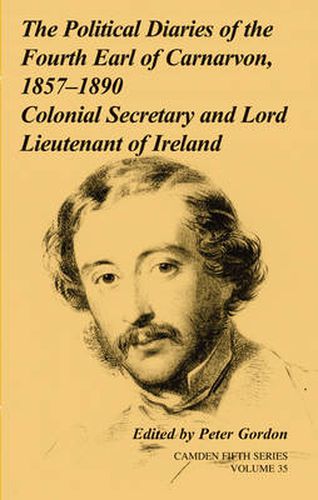Readings Newsletter
Become a Readings Member to make your shopping experience even easier.
Sign in or sign up for free!
You’re not far away from qualifying for FREE standard shipping within Australia
You’ve qualified for FREE standard shipping within Australia
The cart is loading…






Henry Herbert Molyneux, fourth Earl of Carnarvon (1831-90), figured prominently in Conservative high politics during four decades of the second half of the nineteenth century, serving under three Prime Ministers in all the Conservative governments between 1858 and 1886. He was also a member of the Cabinet in three of them, appointed as Colonial Secretary twice, and Viceroy of Ireland during the Home Rule crisis of 1885-6. This book is based on the so-far comparatively neglected diaries which he kept meticulously throughout his life. Few such political diaries of Cabinet ministers on this scale and significance have survived. They show him to be a shrewd observer of events, and the records of his conversations with the leaders of the Conservative Party as well as with political opponents are of the greatest interest. This study has also drawn on many archive collections containing Carnarvon’s correspondence and memoranda.
$9.00 standard shipping within Australia
FREE standard shipping within Australia for orders over $100.00
Express & International shipping calculated at checkout
Henry Herbert Molyneux, fourth Earl of Carnarvon (1831-90), figured prominently in Conservative high politics during four decades of the second half of the nineteenth century, serving under three Prime Ministers in all the Conservative governments between 1858 and 1886. He was also a member of the Cabinet in three of them, appointed as Colonial Secretary twice, and Viceroy of Ireland during the Home Rule crisis of 1885-6. This book is based on the so-far comparatively neglected diaries which he kept meticulously throughout his life. Few such political diaries of Cabinet ministers on this scale and significance have survived. They show him to be a shrewd observer of events, and the records of his conversations with the leaders of the Conservative Party as well as with political opponents are of the greatest interest. This study has also drawn on many archive collections containing Carnarvon’s correspondence and memoranda.